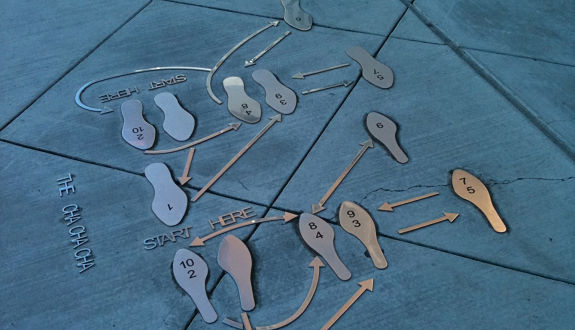
While admissions tests are no walk in the park, the MCAT is considered the most challenging entrance exam. For this reason, you need to thoroughly prepare for it.
During MCAT preparation and on exam day, you will face plenty of challenging material and complicated medical terms (such as cerebrospinal fluid, transient diaphragmatic spasm, gustatory rhinitis, shin splints, or even aphthous stomatitis) that may be difficult to remember–the topic may even be an intentional niche concept.
Here are a few recommendations about how to master these complicated medical terms, how to memorize them, and a bit of advice on how to tackle these questions even if you don’t recall the material perfectly on exam day.
Identify Your Most Challenging Topics
The first step to mastering challenging material and medical language is recognizing which content areas you will need to spend a bit more time with. Throughout your preparation process, we want to spend more time with what is difficult and less time with material and medical jargon that you already feel comfortable with. We’re interested in score improvement, so let’s focus our attention on areas where we still have room to grow.
Check in with yourself regularly to write out a “High Priority Topics List.” This would be a list of ten or fewer current challenges you want to look into to improve your health care literacy. That way, when you become one of many medical professionals, you can help patients make sense of medical records by translating them into plain English, diagnose their medical conditions, and also keep up with new medical jargon later on. Set aside some time in your study plan to rewatch content videos, identify your specific questions, and improve in those areas. If a content item shows up several weeks in a row, it may be a good idea to bring those specific questions to office hours or tutoring. Knowing what you don’t know is an essential skill to progressing.
Break It Down
Once you have identified a health care topic that is challenging, focus on pinpointing what is confusing for you. The more specific the issue, the more manageable your task becomes to clarify the material. If you are struggling to make connections in a complicated biochemistry pathway, focus on the big–picture connections between several infographics on a Limnu board. Talk yourself through the connections and practice zooming out and adding in relevant details.
If you’ve identified that there is a vocabulary or definitional issue, try incorporating regular practice with flashcards created with your own personalized definitions. You don’t need to memorize a lengthy paragraph for each term, just focus on the accurate and relevant features of each definition. Try creating flashcards with the most important bullet points which make up a concise definition. If there are important connections that pop up with certain terms, you may want to incorporate those into your flashcard practice as well.
Watch for Similar Terms
It is very easy to mix up similar terms. It’s helpful to look at both of the definitions next to each other and first identify the similarities between them. You likely already remember this bit if you are mixing the terms up. The solution is then to hone in on the key distinguishing feature that differentiates the terms; focus your flashcard and revision on this important distinction. When you are answering questions, it will be clear which term to select if that central feature was brought up or not.
Test Day
You may have spent hours trying to master areas of challenging content, yet on test day your memory might go blank. This might seem like a terrible situation, but it is still okay! As always, the rule is not to panic. Instead of setting the unrealistic expectation to master every piece of content in the world, trust in your problem solving abilities and strategic insights.
All the practice you’ve completed has prepared you to find hints in the text and make helpful connections to the material you are familiar with. The exam will bring up hard material, but there are plenty of context clues you can utilize to arrive at the correct answer. It is for this reason that we don’t only focus on learning content while preparing for your exam. Taking time to refine your strategies is an essential skill set that will end up benefiting you on your entire exam.
Tacking the MCAT Diagnostic
There are three keys to success on the MCAT diagnostic test. The first is what many students immediately think of: Having a strong foundation in content. This is going to help you pick up on hints and make quality connections to material that you are less comfortable with.
The second is refining your strategy skills through practice. The test makers will intentionally add questions with very challenging content to test your strategy skills when the content material is unfamiliar. The Association of American Medical Colleges (AAMC) looks to identify future doctors who can stay calm and make good decisions even when they are working with unfamiliar material. Instead of seeing challenging content questions as roadblocks, use them as opportunities to utilize your close reading and connection-making skills. Sort through the answer options with a strategically critical lens. The correct answer option must answer the question at hand most completely and be verified by the text. Often with unfamiliar content, it’s tempting to cling to specific language from the text that pops up in answer options. Be extra critical of those flashy options; make sure that the connection they bring up is relevant to what the question is actually asking. By treating these types of questions as puzzles, you can protect your testing momentum and have a confident testing headspace.
The third component to success is cultivating this good testing headspace. Making choices on your exam with a calm, collected, and confident mindset enables you to notice helpful details, be sensitive to overly strong or incorrectly worded answers, and make quality judgment calls. Remember, one hard question will not make or break your overall score. These questions only become a serious issue if you let them make you panicked or flustered or take up more time than one question should be allotted. No one question is worth wrecking the rest of your exam. Always give it your best effort and move forward efficiently because there are likely other easier questions coming up that you need to preserve your time and energy for.
A good flow for tackling hard questions is to recognize them as challenging early on, mentally bolster yourself as a capable problem solver, give it your best effort, and move forward efficiently to keep crushing the rest of your exam. And remember if you need a free practice test to use as a diagnostic, start with ours!
Search the Blog

Free Consultation
Interested in our Online MCAT Course, One-on-One MCAT Tutoring or Med admissions packages? Set up a free consultation with one of our experienced Senior Student Advisors.
Schedule NowPopular Posts
-
MCAT Blog What's on the MCAT?
-
MCAT Blog How to Review MCAT Full Lengths

Free MCAT Practice Account
Need great MCAT practice?Get the most representative MCAT practice possible when you sign up for our free MCAT Account, which includes a half-length diagnostic exam and one of our full-length MCAT practice exams.
Learn More







